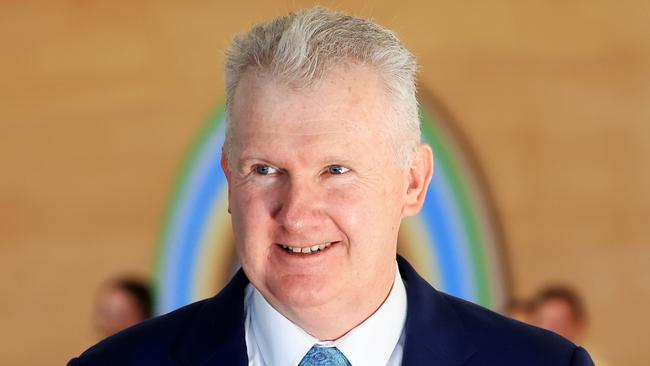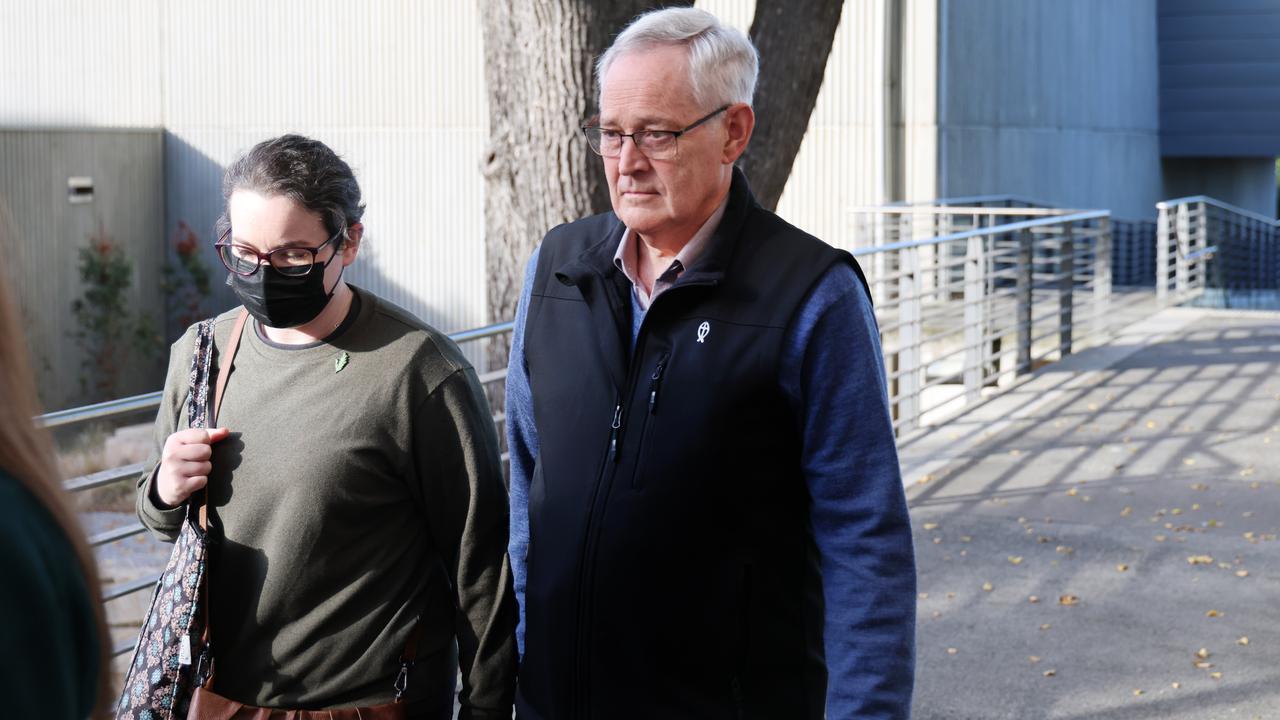Landmark multi-employer breakthrough in childcare
The first application under Labor’s multi-employer laws could se significant taxpayer-funded pay rises for thousands of early childhood education workers.

Unions and employers will make a landmark application under the Albanese government’s new multi-employer bargaining laws that could result in significant taxpayer-funded pay rises for thousands of early childhood education workers.
United Workers Union national secretary Tim Kennedy said the application by unions and about 50 employers to start multi-employer bargaining would be made in the Fair Work Commission on Tuesday.
The Australian understands the government, which would ultimately fund any pay rises that arise out of the application, will seek to be a party to the commission proceedings.
United Workers Union delegates have backed a 25 per cent pay rise but it is too early to say how long the proceedings will take, or the size or timing of any pay rises.
Employers and union officials have moved to ensure the early childhood sector is the first to use the multi-employer bargaining provisions that become legally available from Tuesday.
Employment and Workplace Relations Minister Tony Burke said he expected on Tuesday to see the start “particularly in some feminised industries, of some multi-employer bargaining”.
Mr Burke told Sky News he expected the new provisions to be used in industries “that previously haven’t been able to get good access to enterprise bargaining”. “You’ll find in some of those, some of the employers very, very keen to embark on that,” he said. “You’ve only got to remember the way a whole lot of the childcare centres, early childhood education businesses, were arguing that they wanted a way of being able to use some of those streams that we made available last year for multi-employer bargaining.
“What does all of that ultimately mean? When you get a bargain, you’re always paid above the award, and if you can get that going in feminised sectors as well, it’s not just part of getting wages moving, it’s also part of closing the gender pay gap.”
Mr Burke on Monday mocked an industry advertising campaign against Labor’s proposed same-job, same-pay laws as “plain loopy” and criticised the ads as not knowing “who they’re campaigning against”.
“The government’s conversation is all about closing loopholes and the business conversation is plain loopy,” Mr Burke said.
He rejected claims that the proposed reforms would lead to more experienced workers missing out on higher pay.
“We’re not saying the companies should be paying any more than what they’ve agreed to, but if you’ve actually agreed with your workforce that this is the fair rate of pay that reflects the productivity of the job,” he said. “Then I don’t think you should be able to say but technically the next person we’re bringing in from a labour hire firm so we’re going to undercut everything we’ve agreed to.”
ACTU secretary Sally McManus said the employer claims were completely bizarre and they were more intent on paying for ads than paying their workers properly.
University of Melbourne professor Mark Wooden, founding director of the Household, Income and Labour Dynamics in Australia survey, said the policy was “stupid” and could actually increase the use of labour hire and employers shifting to self-employed independent contractors.
“You’ve seen the way other IR legislation is panning out. It’s driven by political considerations. Presumably the union movement is the people they’re kowtowing here to,” Professor Wooden told The Australian.






To join the conversation, please log in. Don't have an account? Register
Join the conversation, you are commenting as Logout